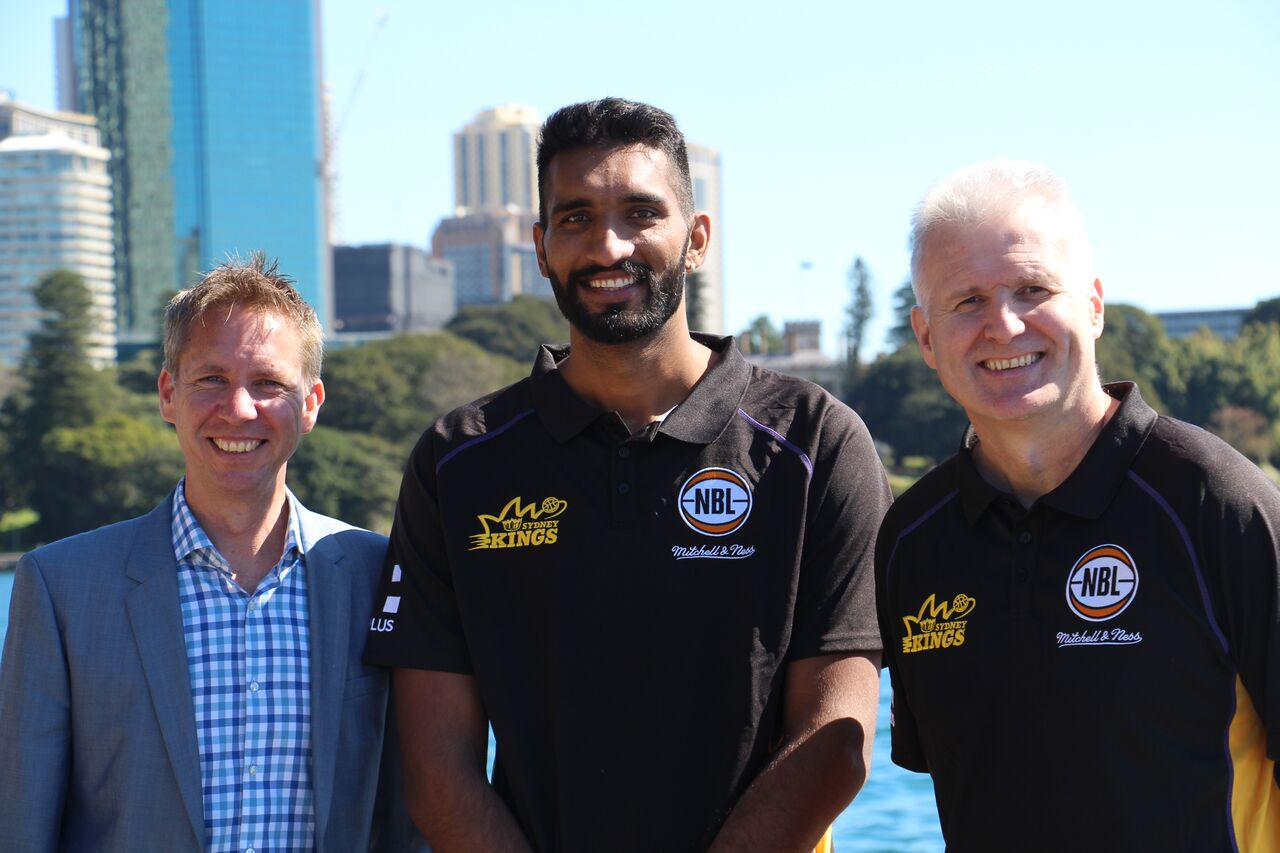
Last year the Sydney Kings Amritpal Singh made history by becoming the first Indian born player to compete in the National Basketball League.
At 27 years old Singh had already achieved arguably more than any basketball player India has produced. He had captained the national team, led India to some key international victories and after a stint in Japan played in reached Australia via it’s annual NBL Combine.
He would go on to play in 24 of the Kings 28 games in 2017-18, averaging 2 points and 1 rebound per game, and carved out an integral role as the team’s primary back-up centre.
Singh’s career would hit a speed bump however when shortly after the seaons ended, as he was preparing to play in the Commonwealth Games, Singh tore the ACL in his left knee, an injury many basketball players never recover from.
The injury would remove him from playing for India in the Commonwealth Games as well any chance of being re-signed in the NBL, something he believe had “100 percent chance of happening”.
Singh, who was born in ‘Ganna Pind’ of Jalandhar district in Punjab, spent many days helping his father plough rice fields in a small village ‘Fattuwal’, part of the Amritsar district, but the hurdles he faced there were nothing compared to what seemed to be the end of his basketball career.
Singh cried alone in his hotel room in Australia for days when it happened.
“For three days, I didn’t leave my room,” Singh confessed. “I just cried. I had already played in the Australian league and felt there was a 100 percent chance of another team bringing me back for the next season.
But now, I was going to miss the Commonwealth Games and my chance at the NBL. I cried a lot. I couldn’t see ahead at my future”
As much as Amritpal was upset about missing the Commonwealth Games Team India missed him back: without him, India lost all three of their preliminary stage match-ups after being viewed as a potential bronze medal chance with Singh in uniform.
Singh returned to India, had surgery and spent three months bed-ridden, moving only to shower before returning back into bed to recuperate.
“I couldn’t walk,” he said. “I couldn’t put any weight on my left knee. I didn’t know what was going on.”
After focusing on physiotherapy and rehab for the remainder of the year, the 212 cm pivot began thinking of returning to the hardwood after his marriage at the end of 2018.
With India’s biggest basketball tournament, the Senior Nationals, nearing he joined Team Punjab and lead them to a gold medal finish, earning tournament MVP in the process and delivered the Punjab its first championship since 2011.
“I hadn’t stepped onto a court since the injured but four days before the tournament I practised once a day. I felt that had completed a strong comeback, winning the MVP at such a big tournament,” he said. “It was a big moment for me.”
Now, Singh is focused on improving his game and making a return to the national team and maybe even the NBL.
He has recently been playing in the Red Bull 3×3 tournament in Mumbai, and although admitting he still has a way to go to regain his previous form, hopes to gain NBL interest once again.
“I’m still not fully fit, and that is the one thing I have to focus on right now. I’m a little slow right now. I’m not even attempting to do a fast movement for now.
I’ve decided to play slow only!” Singh said about his own performance.
Nothing about his journey, however, has been ‘slow’. The boy who grew up playing ‘Kabaddi’, an extremely popular sport in India which is similar to rugby without a ball, was only introduced to basketball ten years ago but it took him only 18 months after touching a basketball for the first time to be selected to India’s national team. He debuted for India in the 2011 FIBA Asia Championship and has been a part of the program every since.
“I had never even played in any junior international tournament before this. My only experience prior to the Asian Championship was playing for Punjab in the senior nationals in 2010.”
From a boy who grew up helping his father plough rice fields in a small village in Amritsar to earning his way onto professional basketball teams in both Japan and Australia Singh is no stranger to overcoming obstacles.
This one, is just the most recent.










